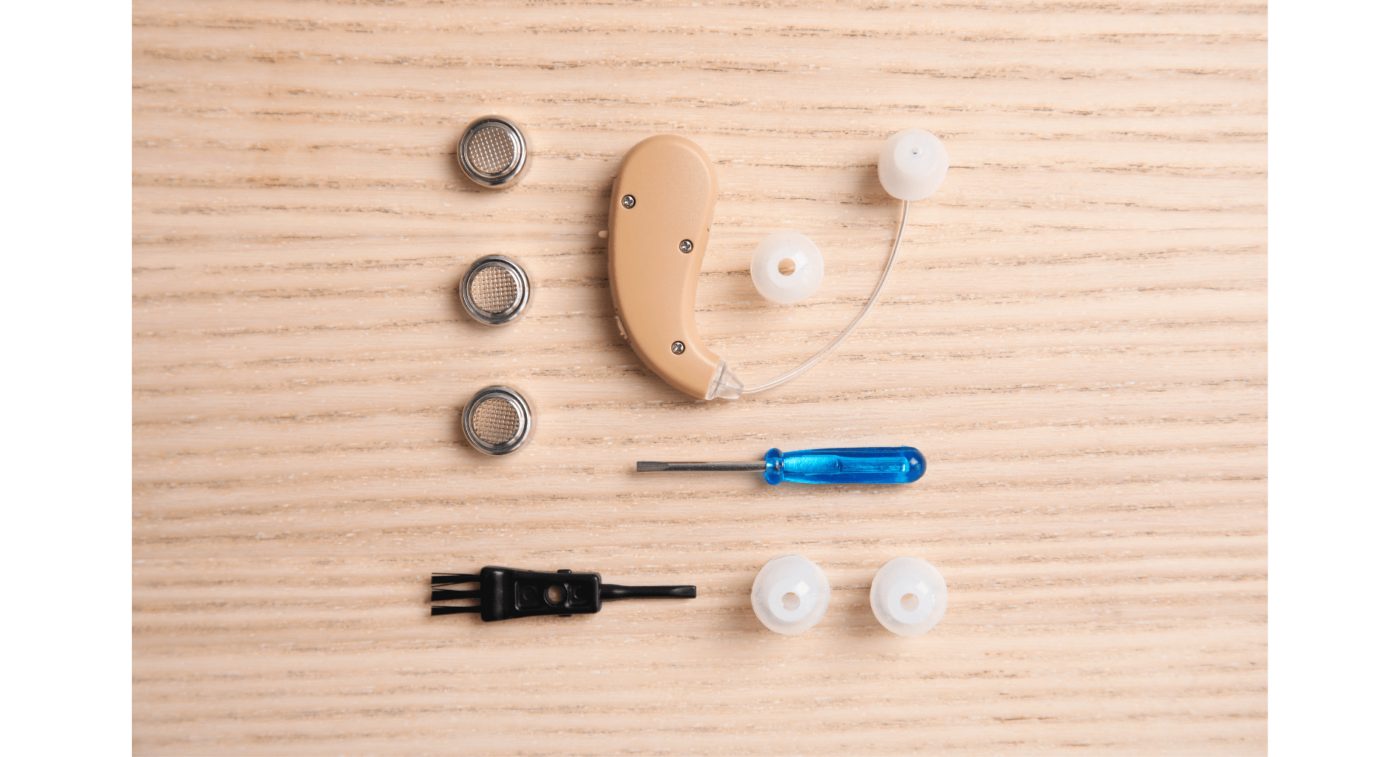Hearing aids are not just devices. They’re lifelines for those with hearing impairments. Hearing aids can bridge the gap between the world of sound and silence, enabling millions to participate fully in their personal and professional lives.
However, like any sophisticated device, hearing aids require proper maintenance and occasional repairs to keep them in great shape. In this comprehensive guide, we’ll explore the best practices for hearing aid maintenance and common issues that may require professional repair.
Daily Maintenance: The Key to Longevity
Daily care is the best thing you can do for your hearing aids. You charge your phone every day and you may even clean the screen regularly. In the same way, small daily tasks will keep your hearing aids in good condition.
Routine Cleaning
Consistent cleaning is your first line of defense against hearing aid damage. Use a soft, dry cloth to gently wipe the surface of your hearing aid every day, removing earwax, dust, and skin oils. Each type of hearing aid requires a slightly different approach:
- BTE Models: Clean the ear mold separately with mild soap and water, ensuring it’s completely dry before reattachment.
- ITE and CIC Models: Use a soft brush tool provided by your hearing aid manufacturer to gently clear any debris from the microphone and speaker areas.
Moisture Control
Hearing aids and moisture do not mix well. Excessive moisture can damage the internal circuitry and lead to costly repairs. To mitigate this risk:
- Open the battery compartment and remove the batteries every night.
- Use a dehumidifier designed for hearing aids to dry out any accumulated moisture.
Battery Care
Proper battery care not only extends the life of the batteries but also helps maintain the device itself. Always handle batteries with clean, dry hands, and store them at room temperature away from direct sun. Remember to turn off your hearing aids when they are not in use to conserve battery life.
When to Seek Professional Repair
Despite diligent maintenance, hearing aids may eventually encounter issues. Here are common signs that your device may need professional attention.
Decreased Sound Quality
If sounds begin to seem muffled or distorted, there could be an underlying issue. Before contacting a professional, check for any earwax build-up on the device, and ensure the battery is properly installed and fully charged.
Feedback or Whistling
While some feedback can be normal, excessive whistling or feedback can indicate an improper fit or a malfunctioning device. If adjusting the fit doesn’t resolve the issue, professional repair may be necessary.
Intermittent Sound
If the sound from your hearing aid cuts in and out, there could be a battery contact issue, or the internal wiring may be faulty. A hearing healthcare professional can diagnose and correct these problems.
How to Prevent Future Repairs
Preventive care is the most effective way to avoid future repairs. Here are additional tips to keep your hearing aids in top condition:
- Regular Professional Check-ups: Just as you would with any other vital medical device, have your hearing aids checked and serviced professionally at least once a year.
- Invest in Protective Gear: Specialized cases and moisture-proof containers can protect your hearing aids from damage when not in use.
- Avoid Extreme Conditions: Never leave your hearing aids in extreme temperatures, and keep them away from water and high humidity when possible.
Seeking Professional Assistance
When home maintenance fails to resolve your device’s issues, it’s important to seek help from a certified hearing aid specialist or hearing aid dispenser. They can offer deep cleaning services, extensive repairs, and adjustments to your hearing aid’s programming to ensure it meets your current hearing needs.
Finding a Reliable Repair Service
You want to find a hearing aid specialist that you can trust. Look for services that offer:
- Experienced Technicians: Make sure you take your devices to technicians who are specifically trained in hearing aid repair.
- Warranty and Guarantees: Opt for services that offer warranties on their repairs for peace of mind.
- Quick Turnaround: A reputable service understands the importance of your hearing aid and offers a quick repair turnaround.
Whether you’ve purchased your hearing aids with us or from another dispenser, we can help you with your hearing aid maintenance and repairs.
Contact Us Today
Regular maintenance and prompt repair of your hearing aids will continue to enhance your quality of life. If you’re experiencing problems with your device, or if it’s simply been a while since your last check-up, book an appointment with us today!

